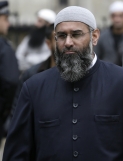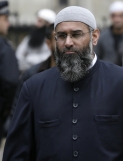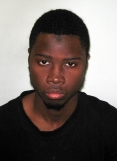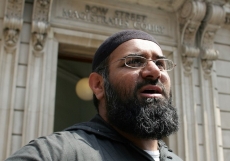He is the articulate hate preacher who celebrated the atrocities of September 11, 2001 and spread his message of jihad throughout the UK and beyond.
For the best part of 20 years Anjem Choudary inspired young Muslims into radicalisation and terrorism while escaping justice. Now, having finally been convicted at London's Old Bailey of backing Islamic State, Choudary faces at least some of the next ten years in prison.
The Prime Minister Theresa May has long wanted to see Choudary behind bars. But it turned out the anti-terror legislation that she enforced as Home Secretary was not enough to justify arrest and conviction.
It was only when Choudary was found to be openly supporting Islamic State that he could be arrested in 2014. Choudary and his close associate Mizanur Rahman, 33, had, prosecutors said, sought to validate the self-proclaimed 'caliphate' declared by ISIS leader Abu Bakr al-Baghdadi and that Muslims had an obligation to obey or provide support to him.
But many people, whatever their political views in this country, argue that he should have been convicted a long time ago.
So who is Choudary? What is his background, what are his links to terrorism and why did it take so long to bring him to justice?
The 49-year-old father of four was born in Welling, on the border of south east London and Kent, the county known as the garden of England. Choudary's parents were Muslims from Pakistan but not especially devout. His father was a market trader and Choudary is said to have enjoyed a reasonably comfortable and happy childhood.
Like many Islamist terrorists, including the 9/11 bombers who visited strip clubs before the attack, Choudary dabbled in drink, drugs and pretty girls in his youth. He had a number of non-Muslim, white friends and, known as Andy, he won a place at Southampton University to read medicine. As with many students however, partying took precedence over studies and he failed his first year exams before switching to law, qualifying as a solicitor and becoming chairman of the Society of Muslim Lawyers. One university contemporary has been quoted as saying: "I can't keep a straight face when I see 'fundamentalist Muslim Anjem Choudary' in the papers, attacking the British for drinking and having girlfriends. When I knew him he liked to be called Andy, would often smoke cannabis spliffs all day, and was proud of his ability to down a pint of cider in a couple of seconds." Choudary himself has said: "I admit I wasn't always practising. I committed many mistakes in my life."
The turning point for Choudary was when he met the Syrian-born Islamist, Sheik Omar Bakri Mohammed, the "Tottenham Ayatollah" at a mosque in Woolwich, south east London.
The pair co-founded Al-Muhajiroun – 'the emigrants' – a radical Islamist organisation which emerged in 1996 and came to public attention when, in the wake of 9/11 Bakri Mohammed helped organise a seminar at the notorious Finsbury Park Mosque entitled, 'September 11 2001: A Towering Day in History'. Choudary looked on as the hijackers were praised as the "Magnificent 19".
After this, Choudary became a regular fixture at major Muslim protest rallies and used his training as a lawyer to stay – just – on the right side of the law.
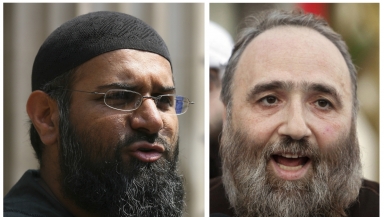
For years he claimed he believed in a "covenant of security" that exempted Britain from being a terrorist target in his eyes because it gave a home to Muslims. However, he publicly called for terrorist attacks abroad so that Muslims could "defend themselves".
Nonetheless, Choudary is now said to have links to around 100 extremists in Britain alone, perhaps the best known of which was one of the two men who killed Lee Rigby in 2013, Michael Adebolajo.
According to documents seen by the Guardian, by 2005 "at the latest" the UK authorities had information showing al-Muhajiroun's willingness to support jihad.
But by then, the group had officially been disbanded before it could be legally banned. Bakri Muhammad left the UK and Choudary, regularly in contact with his old mentor, led a new group which frequently changed its name.
By now Choudary was a regular guest on television, arguing that he surely would have been arrested and be languishing in prison if he was as radical as those questioning him believed. In private however, he is said to have preached jihad.
A number of individuals who attended his lectures and grew close to him went on to commit or try to commit terrorist atrocities.
Of the Rigby killer Adebolajo, Choudary said he was "proud" and that "he was on our ideological wavelength". Adebolajo was pictured standing behind the radical cleric at a rally in 2007. Adebolajo, also a cannabis user, had regularly attended the al-Muhajiroun stall on Woolwich High Street, along with meetings and demonstrations run by al-Muhajiroun and its successor groups for at least five years, from around 2005 to 2011.
Choudary's groups were also linked to Brusthom Ziamani, who said he was en route to behead a soldier when he was arrested in London in 2014 carrying a knife and hammer. In turn Ziamani, who was 19 when convicted, said he had been inspired by the killers of Rigby, describing one of them as "a legend".
Another Finsbury Park Mosque protégé was Richard Reid, known as "the shoe bomber" who in 2001 tried to blow up an American Airlines flight from Paris to Miami.
And another follower of al-Muhajiroun was Kamal Bourgass, an Algerian born asylum seeker who in 2002 began plotting to unleash a ricin attack on the streets of Britain
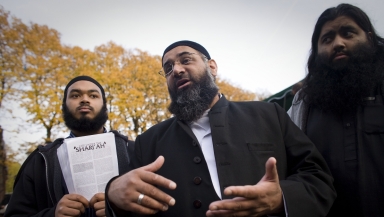
In 2005, the 7/7 London bombings were carried out by Mohamed Sidique Khan, Shehzad Tanweer, Jermaine Lindsay and Hasib Hussain. All had links to al-Muhajiroun and Choudary refused to condemn the attacks.
A more direct link to Choudary came with Richard Dart, a white Muslim convert from Dorset who in 2013 was one of three men jailed for their part in a plot to bomb Royal Wootton Bassett, where mourners paid their respects to British troops killed in Afghanistan. Dart had converted to Islam in the summer of 2009 under Choudary's direct tutelage and became a key figure in the al-Muhajiroun successor group Muslims against Crusades.
And earlier this year, 32-year-old Siddhartha Dhar from Walthamstow, east London emerged as the narrator in an ISIS video in which a number of suspected spies were executed. He had been a spokesman for al-Muhajiroun and a close associate of Choudary.
But in the end, it was Choudary's promotion of ISIS that landed him behind bars. In one audio clip lasting over an hour, uploaded to Choudary's popular YouTube channel on 9 September 2014 and titled 'How Muslims Assess the Legitimacy of the Caliphate', Choudary begins by explaining why he sees Islamic State as meeting the criteria for a legitimate Islamic caliphate. "The lesson from this narration is that obedience to the caliph is an obligation, if they rule by the sharia. And to obey them obviously means they must be established," he said. "I would just say...you know, for people who want to live under sharia law, obviously this is a great thing, and for those people who say we are promoting Isis, they are not even called Isis any more. Rather, you have an Islamic state where you have millions of people who are governed by the sharia law and I don't think it is against the law to go and live there and want to abide by sharia law."
It was messages such as this that got Choudary convicted. But his extensive links to – and inspiration of – jihadist criminals meant he surely should have been stopped many years before he was finally brought to justice.
All in all, having accessed new intelligence documents, the Guardian said: "A conservative estimate is that no less than 100 people from Britain linked to Choudary or his groups have fought or supported violent jihad, according to counter-terrorism sources."
The anti-fascist pressure group Hope Not Hate published a report in 2013 that suggested Choudary and his acolytes had been implicated in as many as 30 terrorist act or plots around the world.
"Justice has been a long time coming," the organisation's chief executive, Nick Lowles said. "For far too long, Anjem Choudary has played a key role as a cheerleader for ISIS, and been allowed to demonise the Muslim community. Over the last 15 years he has influenced and inspired over 100 Britons who have carried out or attempted to carry out terrorist attacks at home and abroad. Finally Choudary can now pay for his actions."










